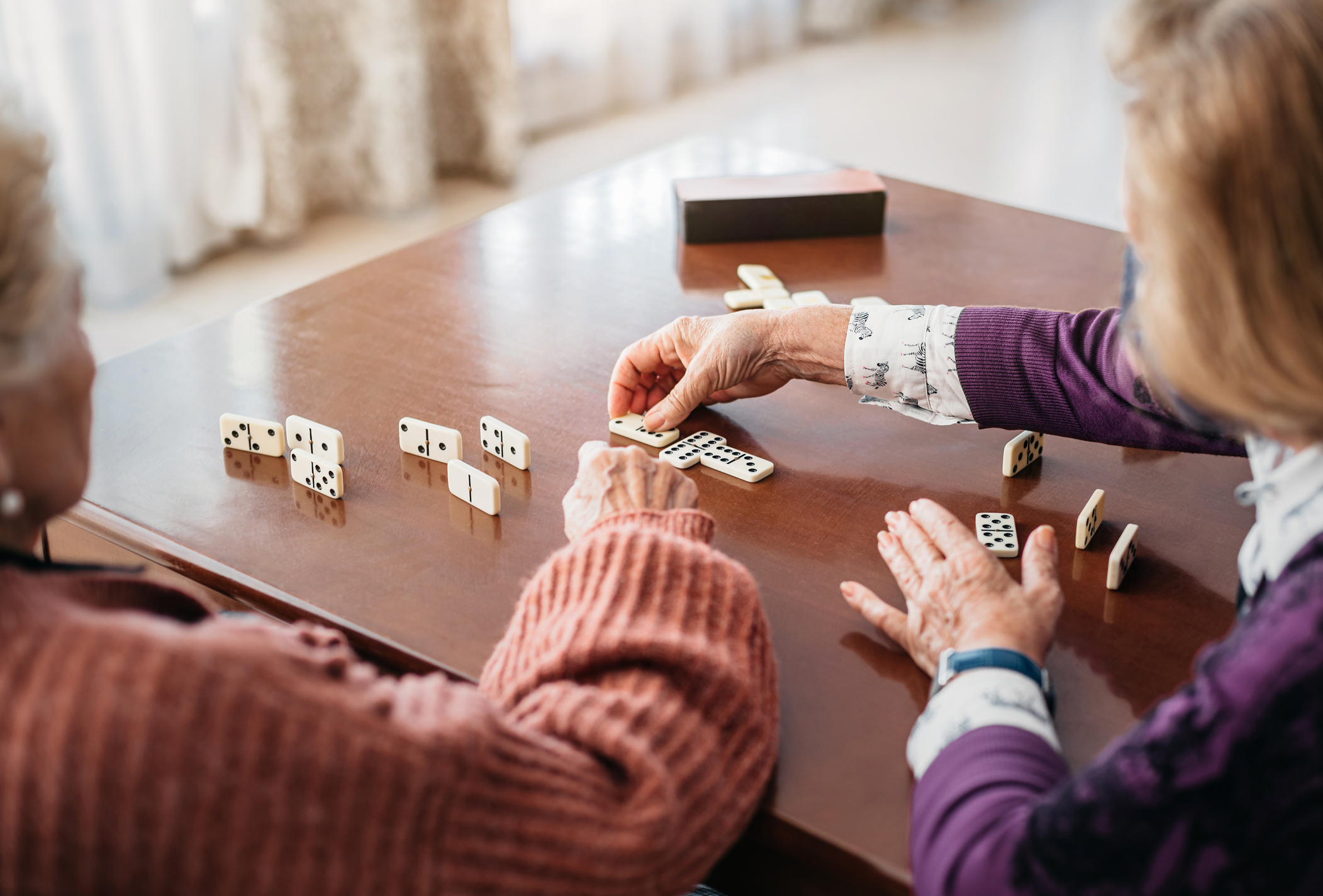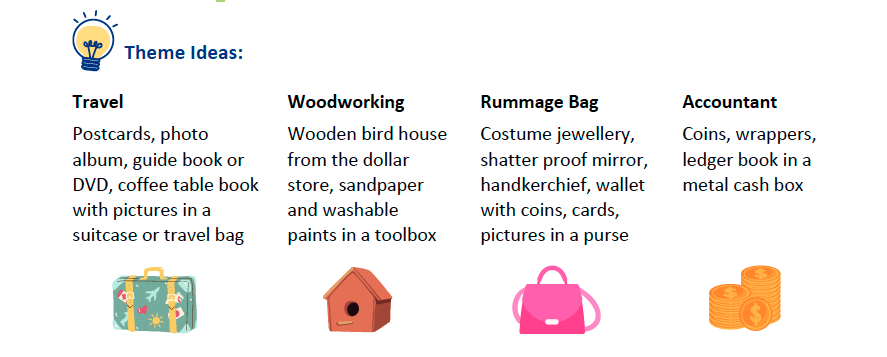
Guest blog post written by The Alzheimer Society of Nova Scotia
The Alzheimer Society of Nova Scotia and Halifax Public Libraries partnered to bring you Memory Kits. Now we want to share some ideas for creating your own memory kits for personal use.
What is a Memory Kit?
Memory Kits include activities that people living with dementia find engaging and that can be adapted as abilities change. The items in the Memory Kits aim to evoke memories, spark conversation, and create opportunities for meaningful engagement. These kits are a great tool for homecare and respite workers as well as friends and family members.
Memory Kits can be centred around a theme such as movie stars, fashion, cooking or cars, with related books, objects, DVDs and games that stimulate memories. They can also be a collection of engaging activities such as brain teasers, word puzzles, jigsaws, dominos, or a deck of cards. It’s up to you!
Kits could contain:

- An adult picture or photo book
- A jigsaw puzzle
- A DVD of a television series
- A game that can be enjoyed
- A feature film that can be enjoyed by all ages
- A book of short stories or poems
- Trivia or interesting facts to start a discussion together
To start:
Find a container; a shoe box, Tupperware, an old purse, an unused drawer, a reusable bag – whatever you have on hand or that might be relevant/meaningful to the person living with dementia. You can even decorate or personalize the container if you like.
Add items with meaning to the kit that are significant for the person with dementia. Involve the person with dementia as they are able. Consider favourite hobbies, work or career related items, special events, places they’ve been or always wanted to go, photos, postcards, letters or books.
Memory kit contents can be adapted over time to keep interest high and keep pace with changes that come as dementia progresses. Keep in mind the person with dementia’s changing abilities. For example, you may not want to include car keys if the person has recently lost their license or small objects if they tend to put things in their mouth. Always be mindful of items that may evoke negative emotions or memories.
Content Suggestions

You may have items around the house and many can be found at a dollar store, department stores and online. Large print books, audio books, DVDs, CDs and movies can be borrowed from libraries. Song lists are available on YouTube, Spotify, or other online sources.
Here are some specific suggestions:
Jigsaw Puzzles – should be age-appropriate and personally appealing. Larger pieces can be easier to pick up and place.
Games – choose games that are engaging and challenging without being overwhelming, and that can be adjusted based on abilities and preferences. Dollar stores have large playing cards, dominoes and other wooden puzzles.
Word Puzzles - large font sizes and simpler word choices can make them easier to read and understand. Dollar stores often have many types of word puzzle books such as Suduko, Word Search and Crosswords.
Promoting Reminiscing – stories and memories from the past are often well preserved and can spark wonderful conversations and discussions.
Trivia – use the cards from old board games and just ask the questions or search the internet for interesting facts.
Conversation Starters - daily calendars with jokes or words, journals with prompts or a box of conversation starters can start a great discussion.
Large Print Books and Short Stories - can make reading easier and more enjoyable. Consider old favourites, short stories such as the “Chicken Soup” style books, or poetry.
Audiobooks - can be found online or on CD at your local library for free. Talk to a Library staff member to get started.
Sing-along DVDs and Music – music and dance have long been a part of the human experience: enriching our lives, providing opportunity for relaxation, socialization and recreation. Stored in a different part of brain, music and dance are often well preserved as dementia progresses.
Theme ideas:
Travel
Postcards, photo album, guide book or DVD, coffee table book with pictures in a suitcase or travel bag
Woodworking
Wooden bird house from the dollar store, sandpaper and washable paints in a toolbox
Rummage Bag
Costume jewellery, shatter proof mirror, handkerchief, wallet with coins, cards, pictures in a purse
Accountant
Coins, wrappers, ledger book in a metal cash box
Resources

Libraries:
Libraries are a great way to sample the contents for free to discover interests and ideas, and to experiment before purchasing items. Here are some Nova Scotian examples you can borrow:
Suggested websites:
DementiAbility, opens a new window
CDS Boutique, opens a new window
Keeping Busy, opens a new window
Melody Lane Sing-a-long, opens a new window
The Alzheimer Society, opens a new window
By phone:
Call The Alzheimer Society at 1-800-611-6345 for more helpful suggestions



Add a comment to: How To: Create Your Own Memory Kit